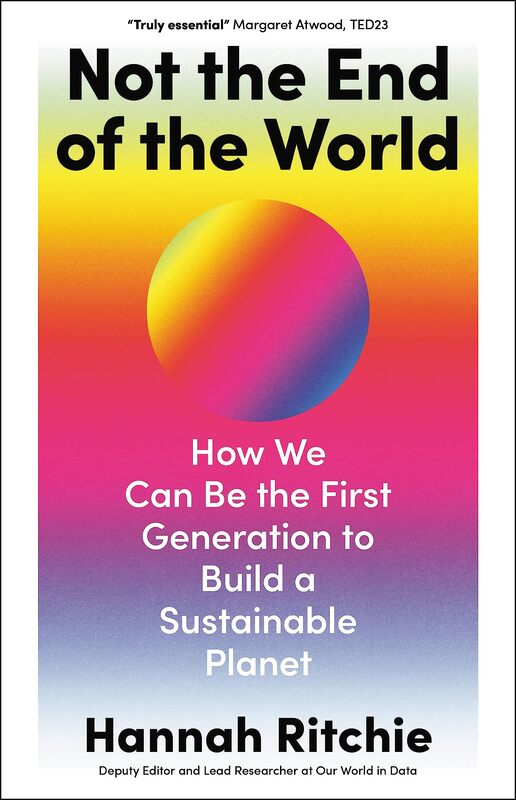 "Many changes that do profoundly shape the world are not rare, exciting or headline-grabbing. They are persistent things that happen day by day and year by year until decades pass and the world has been altered beyond recognition. . . . My job is not to do original studies, or to make scientific breakthroughs. It's to undersatnd what we already know. Or could know if we studied the information we have properly" (5). "Optimism is seeing challenges as opportunities to make progress; it's having the confidence that there are things we can do to make a difference. We can shape the future, and we can build a great one if we want to" (9). Thanks so much to Little, Brown Spark for the advanced copy of Hannah Ritchie's Not the End of the World: How We Can Be the First Generation to Build a Sustainable Planet. This was a revelatory book for me, one that offers an important, optimistic view of the fight against climate change and toward sustainability. Ritchie's viewpoint is not, as she clarifies, one of "complacent optimism." Instead, she advocates for "conditional optimism," the idea that—while the situation facing our civilization is incredibly serious—there has been progress toward a sustainable planet, and there's hope for continued progress in the future. The book's chapters, after the introduction laying out her viewpoint, each take on a different issue (air pollution, climate change, deforestation, food, biodiversity loss, ocean plastics, and overfishing). In each chapter, Ritchie begins with a section "How we got to now," updates "where we are today," and then offers recommendations about what we can do to build on any progress that has been made. She also includes a section on the areas we often worry about that don't make all that much of a difference, systemically. What I loved most about this book is how empowering it is. She never shies away from acknowledging the seriousness of each problem she considers, but she also discusses the ways that false or confusing media narratives have driven us to misunderstand the implications of some statistics (or the statistics themselves). Ritchie never makes light of how difficult some of the changes she recommends will be, but they are eminently realistic. This was just the book I needed to start off the year. I absolutely loved it.
0 Comments
Leave a Reply. |
AuthorI'm Jen Moyers, co-host of the Unabridged Podcast and an English teacher. Archives
July 2021
Categories
All
|
Proudly powered by Weebly
 RSS Feed
RSS Feed